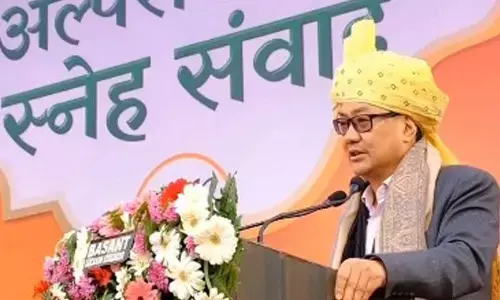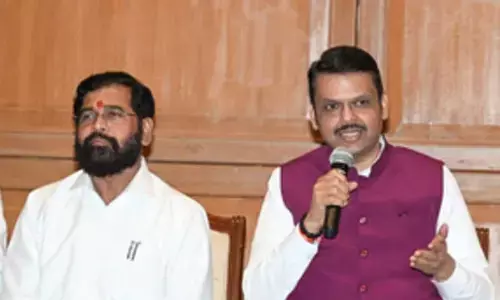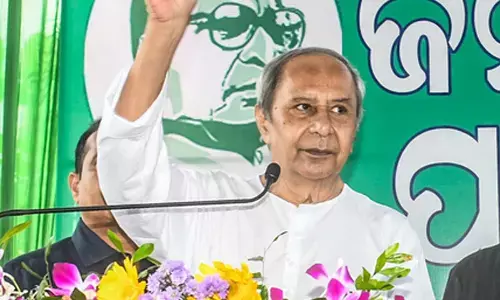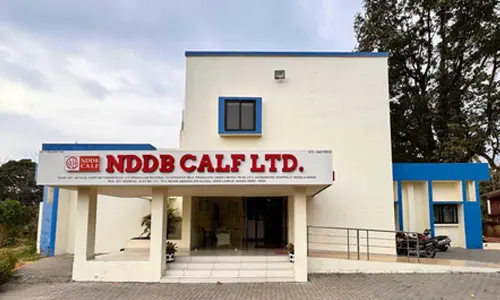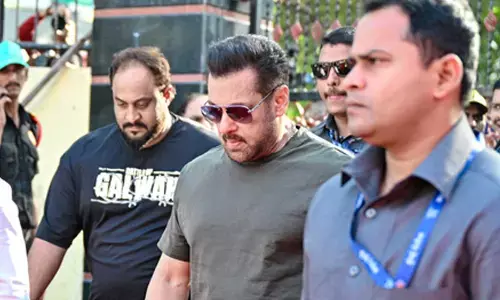Signora Sonia spells trouble

It was the Bofors howitzer scandal which brought down the Rajiv Gandhi government in 1989. Since then, none from the dynasty has been the prime minister although the Congress has been in power.
It was the Bofors howitzer scandal which brought down the Rajiv Gandhi government in 1989. Since then, none from the dynasty has been the prime minister although the Congress has been in power.
Now, when its political fortune is at its lowest ebb with its tally of Lok Sabha MPs at a humiliating 45 - a far cry from the 415 of the 543 elected seats it won in 1984 - the Congress has been hit by yet another scandal. This time, it is not howitzers, but helicopters. But the charge is the same - embezzlement of funds by Congress politicians.
If Rajiv Gandhi was the prime suspect in the 1980s, it is his widow, Sonia, who is now in the firing line of the ruling Bharatiya Janata Party (BJP). The needle of suspicion is pointing towards her because of the reference to "Signora Sonia" as the "driving force" behind the purchase of the helicopters in a letter written by a middleman, James Christian Michel, to the India head of AgustaWestland, Peter Hulet.
An Italian court has also noted that there is "reasonable belief" that the helicopter deal was not fair or above board. There is little doubt that there's a long way to go before the Congress president or anyone else in the party is charged with incontrovertible proof against them.
The case against Rajiv Gandhi, for instance, in the Bofors affair has never been conclusively settled notwithstanding the references in the Bofors chief Martin Ardbo's diary to an "N", widely believed to be Arun Nehru who was Rajiv's ministerial colleague at the time, "Q", probably the Italian businessman, Ottavio Quottrocchi, who was said to be close to "R" (Rajiv?), and to an unspecified "Gandhi trustee lawyer".
But the difference between then and now is that the Congress is no longer in power, let alone be in an unassailable position as in the early years of Rajiv Gandhi's premiership. The Congress's clout at the time enabled Quottrocchi to leave India while the investigative agencies looked the other way.
Such dodgy manoeuvres will no longer be possible. The party is currently bereft of both the earlier nationwide political influence and the popularity of the first family which led to Rajiv Gandhi's massive victory in 1984. Instead, the plethora of corruption cases which brought down the Manmohan Singh government in 2014 has made the Congress a byword for sleaze in public perception.
The Agusta deal can be said to be a part of the series of shady transactions such as the scams relating to 2G spectrum, the Commonwealth Games, the Adarsh housing society or the coal block allocations which characterized Manmohan Singh's tenure. In the present scenario, even if the Congress's piggyback ride on the Left in West Bengal fetches it a few seats, the success will not bring the party much joy.
In any event, as long as the names of its top leadership are not cleared of malfeasance, the Congress's new friends are likely to maintain a safe distance from the party. For the BJP, the Congress's entanglement in yet another corruption case is a godsend as it will take much of the steam out of the Congress's aggression in parliament.
The BJP appears to have left it largely to its in-house maverick, Subramanian Swamy, to take on the Congress in both the Agusta and National Herald cases. The second litigation is about the first family's control over the assets of a newspaper, founded by Jawaharlal Nehru, which is no longer published.
The Congress's and the dynasty's woes suggest that a recovery is a long way off. The fact that the Agusta agreement took place at a time when two leaders known for their integrity - prime minister Manmohan Singh and defence minister A.K. Antony - were at the helm of affairs, is a pointer to the presence in the party of powerful individuals who are prone to cutting corners.
True, the deal was cancelled, an inquiry ordered and the company blacklisted by the previous government. But the Italian court is still not convinced that nothing untoward happened. The Narendra Modi government, on its part, should push ahead with the probe instead of trying to score political points from the Congress' discomfiture. Now, the Agusta revelations have made it more difficult for the Congress to claim that it follows the straight and narrow path.
By Amulya Ganguli








